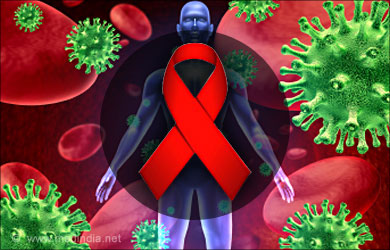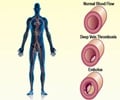Causes of Blood Clots
Any condition that damages the inner lining of a blood vessel causes stagnation of blood or hypercoagulable states can lead to the formation of an abnormal blood clot.
Clots can form in arteries, in veins as well as in the heart.
- Excessive cholesterol in the blood gets deposited in the walls of the arteries resulting in the formation of a plaque and a condition called atherosclerosis. This could result in narrowing of the blood vessel lumen and obstruction to the flow of blood. Sometimes, the plaque ruptures and a clot forms over it. The clot can occlude the blood flow, resulting in stroke, angina, heart attack, peripheral arterial disease or bloody diarrhea.

- When a person becomes immobilized, the blood tends to stagnate in the veins and form small clots. These small clots gradually grow and block the vein either partially or completely.
- Clots can also form in the heart. In conditions where the heart beats irregularly like atrial fibrillation, blood stagnates in the heart and can result in the formation of a clot.
Conditions that may predispose to the development of blood clots include:
- Genetic causes: Genetic problems can affect the clotting factors and can result in hypercoagulable states. E.g. Factor V Leiden

- Acquired Causes: Other causes that could result in the formation of abnormal blood clots include:

- Cancer
- Pregnancy
- Usage of birth control pills or hormone replacement therapy
- Disease conditions like atherosclerosis, atrial fibrillation, congestive heart failure and previous history of pulmonary embolism
- Autoimmune disorders like antiphospholipid antibody syndrome
- Kidney diseases like nephrotic syndrome
- HIV / AIDS

- Medications used for the treatment of cancer such as tamoxifen, thalidomide, lenalidomide and bevacizumab
- Other Risk factors include age, family history, smoking, excessive alcohol intake, high cholesterol levels, diabetes, high blood pressure and a sedentary lifestyle.















